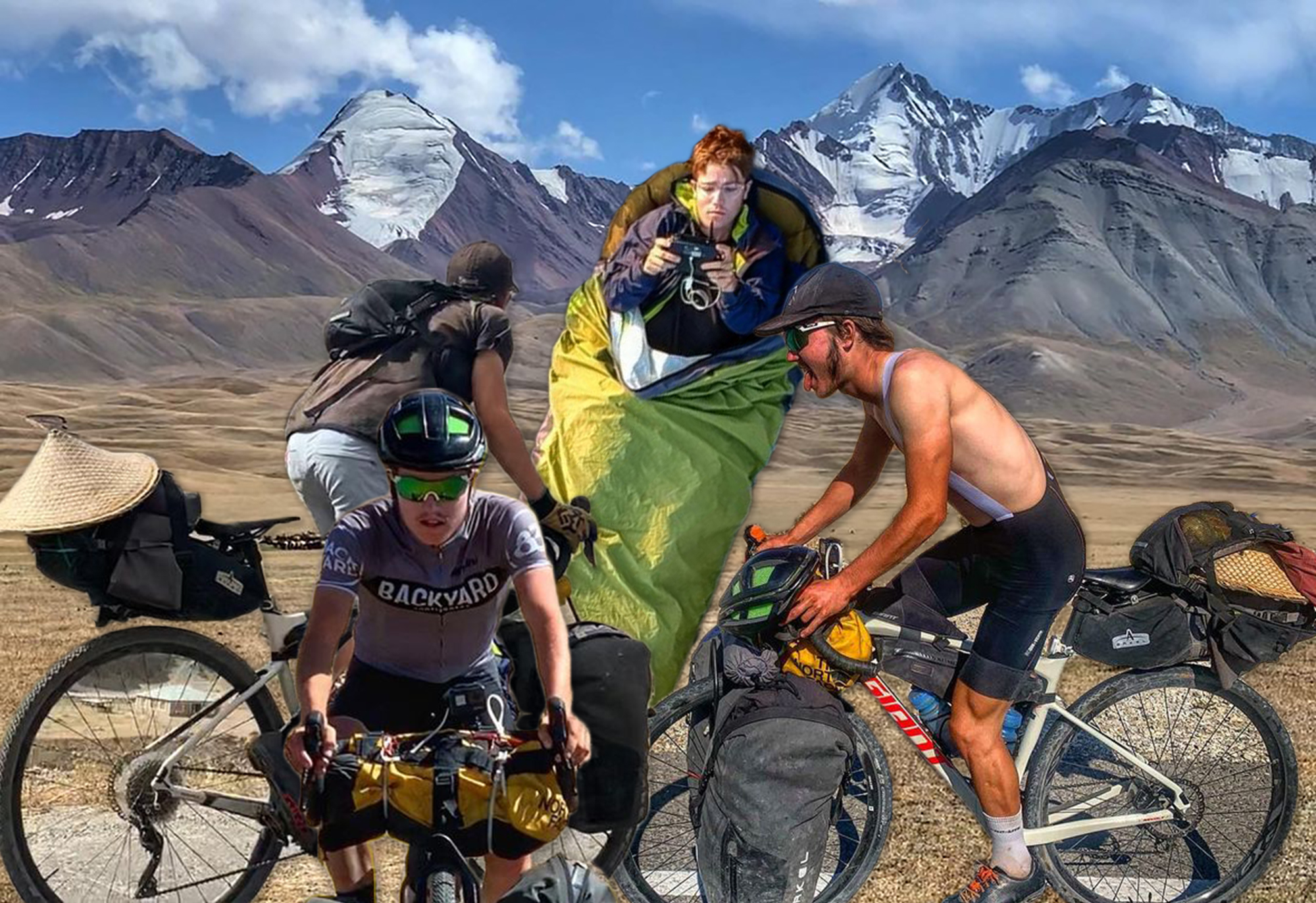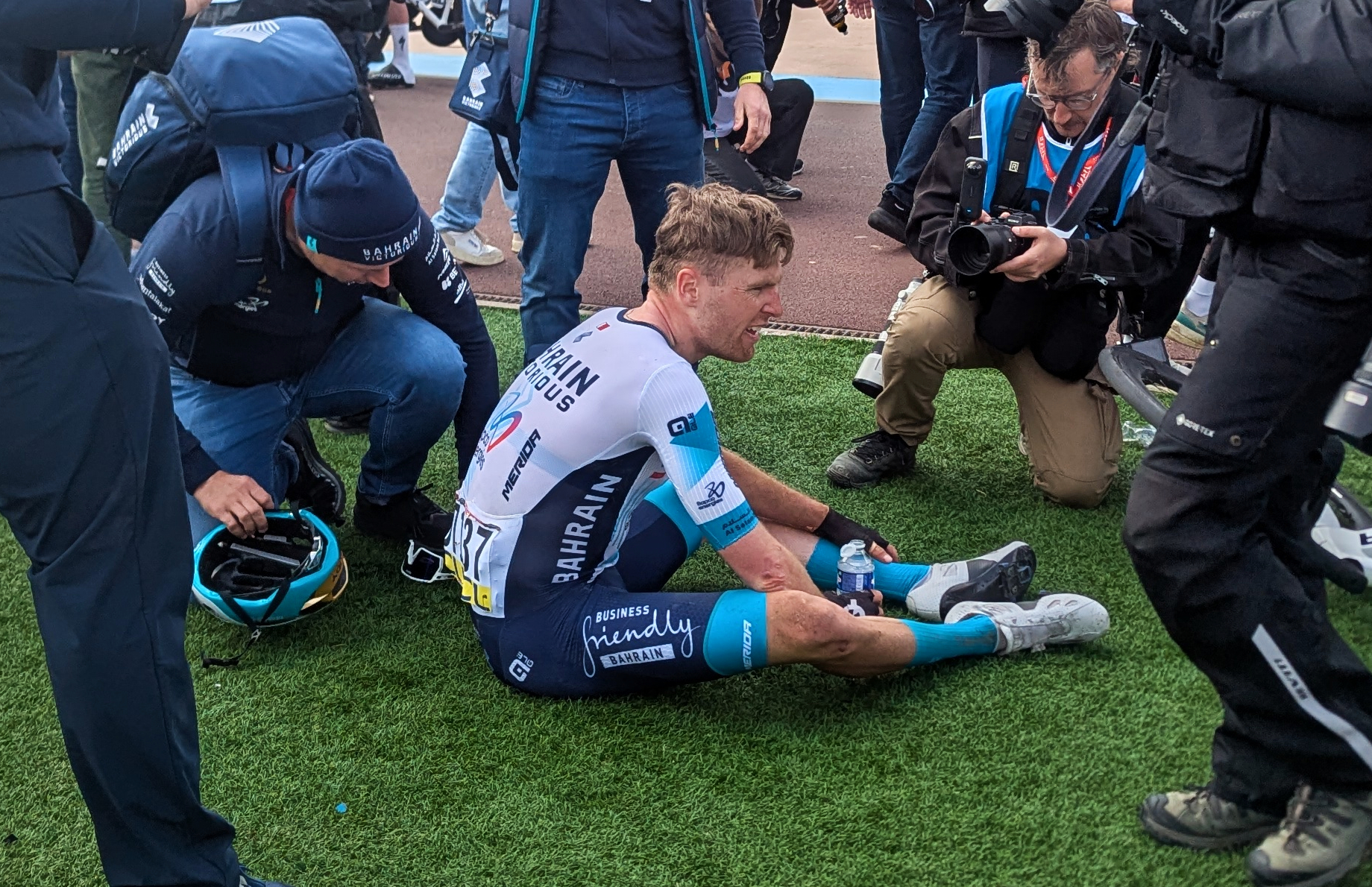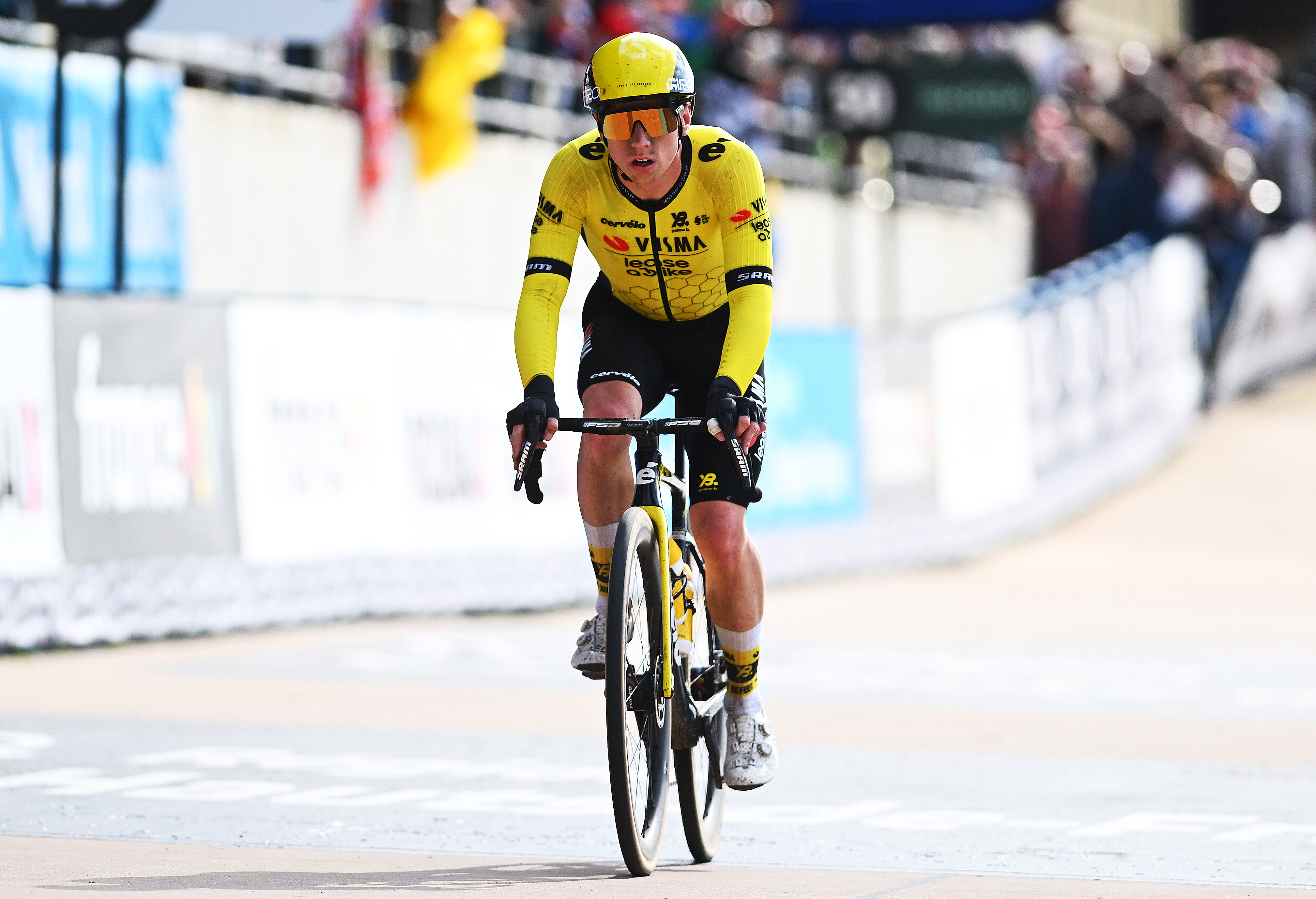'I spent four months cycling 9,300 miles home from China to Newcastle'
Looking for a different way to import a bike to the UK, Josh Reid picked one up off a production line in Shanghai, riding 9,300 miles home through 15 countries, sleeping at the side of the road and being taken in by strangers along the way

Josh Reid (Josh Reid/Instagram)
When backpackers in their early twenties head over to Southeast Asia they'll pack the usual swimming costumes, insect repellent, sunglasses, maybe a couple of books to keep them occupied while nursing their mosquito bites on a sweltering Thai island beach.
What most won't lug around the peninsula, however, is all the cycling kit you need to ride the 9,300-mile journey home to Newcastle.
But that's what Josh Reid did, panniers strapped on his back looking like a turtle, flying to the other side of the world knowing his return journey would take a bit longer than half a day.
"I just sat around the kitchen table chatting to my dad and godfather, coming up with different things I could be doing," Reid told Cycling Weekly of the birthplace of the idea, having spent the previous couple of years as a winter ski instructor and summer tree planter in British Columbia on a two-year working visa in Canada, ending his stint in North America by cycling the full length of Nova Scotia to Cape Breton.
>>> Round-the-world cyclist killed near home while on ride, saves six lives with organ donation
With the majority of bikes these days manufactured in Asia, the idea was to import a bike himself. The trip took place over four months in 2019, his method proving prescient given how complicated the coronavirus pandemic made buying a bike in 2020.
Having arrived in Singapore in May, he worked his way north, only touching a bike once in two months as he attempted to recreate the Top Gear episode over the Hai Van Pass in Vietnam on a Dutch bike.
Get The Leadout Newsletter
The latest race content, interviews, features, reviews and expert buying guides, direct to your inbox!
Originally wanting to source a bike from Cambodia, it proved too tricky to get one straight off the production line, so instead travelled up to Shanghai, where they make them in large enough batches to nab one straight from the Giant factory floor.
"I knew roughly which countries I could go through," Reid said. "I looked before, seeing which I could get visas for and which were safe to go through with the geopolitics of different areas but I pretty much just winged it, heading straight to Newcastle with a few wiggles in the way."
There wasn't a set number of miles Reid had to clock up each day, and as long as he had food and water he was happy to sleep in his bivy sack at the side of the road. Amazingly, he only had four days of rain throughout the trip, and that was mostly towards the end as he re-entered Europe.
Without a Garmin, he navigated home using an app on his phone, splashing out on a hotel room whenever he fancied a shower or needed to charge his electronics, taking in the Terracotta Warriors, Buddhist monasteries, riding his Giant Revolt, using Arkel Panniers and a Robens sleeping mat, for those interested in having all the gear if not quite the idea of how to replicate Reid's feat.
One of the most difficult moments came at the start of the trip as he made his way west through China, heading into the northwestern provinces where they don't get many tourists and are wary of foreigners, given that one million Uighur Muslims are currently being held in detention centres in the region. Reid dismantled his drone and hid the pieces at the bottom of his bag as he passed through checkpoints stationed every 40km, using Google Translate to chat to the friendly police who always offered him food and pretending not to understand if they asked any tricky questions.
https://www.youtube.com/watch?v=Mmdxs_0yYwc&ab_channel=JoshReid
The main issue in China was that camping is technically illegal, and foreigners are meant to stay in hotels every night so the state can keep track of their movements. One night, a couple of policemen took him out for dinner, locals staring as he slurped noodles in his lycra, before dropping him off at a hotel.
As he was about to pay, 10 Chinese SWAT barged in with bulletproof shields, guns and batons, asking questions before whisking him away in a van, chucking his bike in the back, driving him off to who knows where. Before long, a message came through on the radio saying he could indeed stay at the hotel he'd just been checking in to. "I eventually got into the hotel at 2am to get a shower," Reid said. "I just wanted to get out of that part of China really."
Sleeping on the side of the road in the Gobi Desert to try and avoid any more run-ins with the police, Reid was overwhelmed when he finally arrived at the Kazakhstan border, greeted with smiles and a handshake from guards wearing massive, wide-brimmed hats.
At this point of the journey, with so many more miles to go and the difficulties he had already faced, did he ever think about sacking it in and booking the next flight home?
"It was probably quite a lot of effort to get to an airport and I'd already committed," Reid said, understated, the logistical complications of sleeping on a departure lounge floor undesirable when compared to a hard shoulder in the middle of nowhere in China.
"I'd already told people what I was doing, I was still having fun. It was still an adventure. I never felt unsafe. I never thought about quitting."
While riding unassisted halfway across the planet, you have to be ready for most things, take each up and down as it comes. But the one thing that came as the biggest surprise to Reid was how welcoming people were.
"The kindness of strangers was incredible," he said. "People just invite you in, especially in places like Central Asia. The further west I got, the less openly kind people became. I'm sure people were kind, and hosts gave me warm showers and things, but people in the west are more in their own worlds and worried about their phones and stuff, noses down, whereas in the east, like in Central Asia definitely, people are more curious about what you're doing. They're a bit more interested in you. They don't see a lot of these places, they don't see many westerners. They're very interested and come and ask you questions, whereas I'm sure like in Germany, where cycle tourism is more common, people tend not to talk to you as much.
"The kindest place I experienced was on the border of Afghanistan," Reid continued. "A place where people are like 'don't go there, that's scary', that's where I experienced the most kindness. A Muslim guy stopped me, spoke really good English and we had a conversation. I asked him if there was anywhere to camp around town because I'd been through these villages and there wasn't really anywhere obvious.
"He said: 'If you ask anyone in this village, they'll put you up for the night'. So he took me over to these young guys on the side of the street, chatted to them and just said, 'follow them'. I followed these guys through these back alleys and they took me to their grandma's house. They put me on an Uzbekistan-style mattress on the floor, fed me all their local cuisine, and showed me around their local area in the morning before setting me on my way. You experience these things that you wouldn't if you're on a tourist bus where you go from destination to destination, but by cycling, you're experiencing every single mile along the route."
On the bike, the most challenging place was Tajikistan, also known as the 'roof of the world' as roads rise up to 4,600m above sea level. "It's incredibly beautiful but it's on really bumpy roads with potholes," Reid says, "bigger than anything in the North East of the UK".
The last country where Reid was offered accommodation was in Eastern Europe, either Bulgaria or Serbia. After so many kilometres, roads are roads and countries begin to blur into one.
"I was camping on the side of the road in my bivy and then this guard dog started barking at me. A guy came over and started questioning me but neither of us had a common language. He got a pen and pad of paper out, drew a stick person and pointed at me, drew a house, drew a car, and then pointed to his car. I put my bike in his car and he took me to his house and fed me, I had a shower, a bed I could use. And then in the morning he set me off with some more food. He was an artist so he gave me this oil lamp and just sent me on my way. We didn't speak a word of each other's language. There are so many stories similar to that, of people being so kind."
After four months on the road, Reid finally arrived home in November 2019. Photographing his journey on an Instagram account that will make you want to book a one-way ticket somewhere far-flung right away, and producing a low-fi YouTube documentary that provides the perfect antidote to the over-edited, over-advertised noise of the rest of the platform. Reid now has a story to tell his grandkids, one without any chapters he wishes to re-write or pages preferably ripped out if he could do it all over again.
"I'm not sure I'd want to know everything that had happened. It's kind of nice not knowing," he says. "I guess that's the good thing about winging it a little bit. You never know. You can never plan anything down to a tee anyway.
"Something's always going to go wrong or something is just gonna happen differently. You've just got to live with what happens."
The question now is that having cycled halfway around the world, what sort of adventure is enough to get him out of bed in the morning?
"Cycling from my home all the way down to Morocco would be pretty cool," he admits, although it's not just jollies he's after from his endurance riding.
"I was meant to race Transcontinental last year but it got cancelled," Reid says, who grew up racing. "So if it goes ahead this year, I'm gonna be doing that."
Actually, Reid says, there is one thing he'd do differently about his ride from China to Newcastle. Only pack one swimming costume next time, having had two on him while backpacking and riding them the whole way home.
If you're going to live with regrets, packing two pairs of swimming trunks is a pretty good one to have.

Thank you for reading 20 articles this month* Join now for unlimited access
Enjoy your first month for just £1 / $1 / €1
*Read 5 free articles per month without a subscription

Join now for unlimited access
Try first month for just £1 / $1 / €1
Jonny was Cycling Weekly's Weekend Editor until 2022.
I like writing offbeat features and eating too much bread when working out on the road at bike races.
Before joining Cycling Weekly I worked at The Tab and I've also written for Vice, Time Out, and worked freelance for The Telegraph (I know, but I needed the money at the time so let me live).
I also worked for ITV Cycling between 2011-2018 on their Tour de France and Vuelta a España coverage. Sometimes I'd be helping the producers make the programme and other times I'd be getting the lunches. Just in case you were wondering - Phil Liggett and Paul Sherwen had the same ham sandwich every day, it was great.
-
 'I'll take a top 10, that's alright in the end' - Fred Wright finishes best of British at Paris-Roubaix
'I'll take a top 10, that's alright in the end' - Fred Wright finishes best of British at Paris-RoubaixBahrain-Victorious rider came back from a mechanical on the Arenberg to place ninth
By Adam Becket Published
-
 'This is the furthest ride I've actually ever done' - Matthew Brennan lights up Paris-Roubaix at 19 years old
'This is the furthest ride I've actually ever done' - Matthew Brennan lights up Paris-Roubaix at 19 years oldThe day's youngest rider reflects on 'killer' Monument debut
By Tom Davidson Published